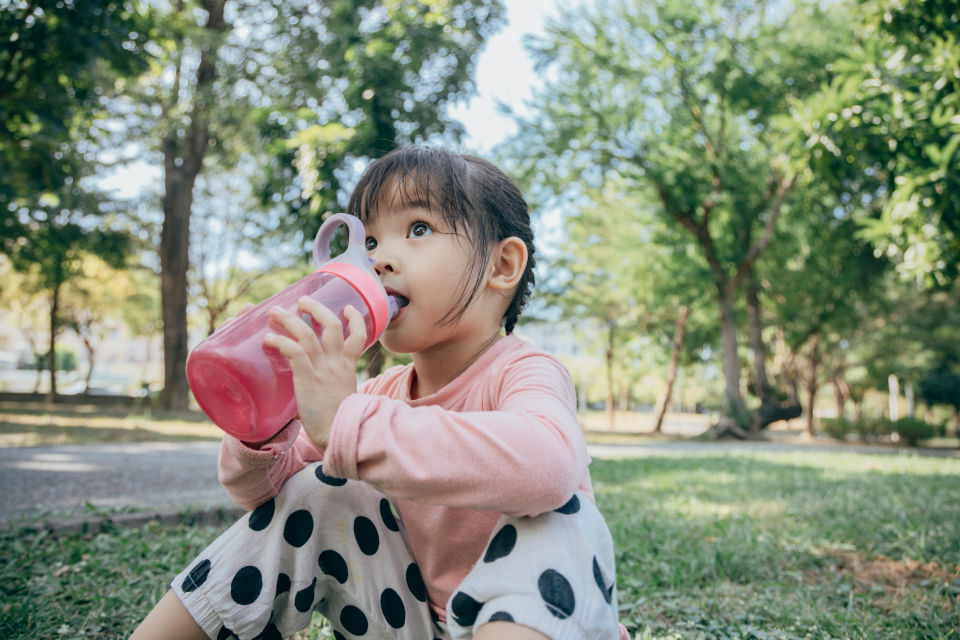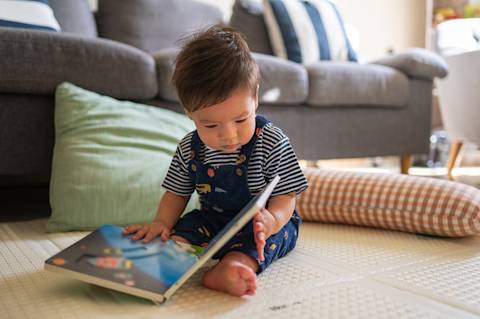It’s on parenting websites, doctors’ office pamphlets, videos, and more: Keep your child hydrated! But what does that mean, and why is hydration so important?

Staying hydrated means ensuring your child drinks plenty of fluids—primarily water—throughout the day to keep their body properly nourished and functioning at its best. There are many different reasons why staying hydrated is important:
Boosts brain power: Our brains love water. Staying hydrated helps children think better and concentrate on their fun and learning activities.
Keeps their bodies strong and energized: Our bodies are made up of around 60% water, and it plays a big role in many essential functions. Drinking water aids in digestion and helps our bodies break down food. Water also helps keep muscles and joints in good shape, reducing the risk of injury. Water creates energy in our cells, giving children the power they need to play, learn, and explore all day long.
Protects children from germs and viruses: When the body is hydrated, it is easier for viruses to stick to the mucous membranes, rather than enter into the body. An example of a mucous membrane is the lining inside your nose, also known as the nasal mucosa. This moist, protective layer helps to trap and filter out bacteria and viruses. The next time your child blows their nose or sneezes, the mucus leaves the body with the virus. Staying hydrated keeps the mucous membranes soft and moist to better catch viruses.
The amount of water your child needs to stay hydrated depends on their age. Below, we’ve provided general recommendations, but each child's needs may vary depending on factors such as activity levels, how hot it is outside, and their overall health. Pediatricians recommend the following:
Under 6 months old: Infants do not need any additional water besides what they get from breast milk or infant formula.
6–12 months old: A little bit of water, about 0.5–1 cup a day (4–8 oz), can be offered in an open, sippy, or straw cup so they can practice water drinking skills.
1–3 years old: They need approximately 1–4 cups (8–32 ounces) of water per day and about 2–3 cups (16–24 ounces) a day of milk. Try providing no more than 0.5 cups (4 ounces) of juice daily.
4–5 years old: Older toddlers and preschoolers need about 1.5–5 cups (12–40 ounces) of water daily. Additionally, it’s recommended that they have up to 2.5 cups (20 ounces) of skim milk or low-fat milk a day and no more than 0.5–0.75 cups (4–6 ounces) of juice a day.
To encourage your child to stay hydrated, try keeping a bottle of water nearby at all times and remind them to drink from it when they’re thirsty. This will also make it easier to see how much water they’ve had throughout the day. You can try turning water drinking into a fun game by challenging them to get to a certain point on their water bottle by the next meal or by the time their episode of Peppa Pig ends.
For toddlers and preschoolers who don’t like drinking water with every meal (or even every day), consider squeezing fresh juice from an orange or another juicy fruit into their water. The flavor boost can make water more appealing while adding extra vitamins to their drink. You can also try offering toddlers and preschoolers sparkling water to see if “fancy” water encourages them to drink more.






